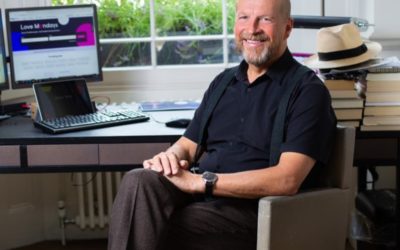If there’s one lesson you may have learnt in recent months it’s the fact that although you can have a clear, robust plan for your future, things don’t always turn out as you hope. Your plans for a job, internship or even a gap year have possibly been turned upside down in recent months and you are having to embrace a new way of living.
However, it’s not all doom and gloom.
Some industries are coping better than others and several employers are still taking on new staff. So although it may be tempting to give up job searching for now, it’s worth keeping an eye out for opportunities. Apprenticeships (jobs with formal training) are advertised on the government’s national vacancy website or sites such as Rate My Apprenticeship and UCAS Career Finder. You can also contact employers directly.
Right now you may have more free time on your hands than you’ve ever had, so apart from keeping an eye out for vacancies, how can you make the most of it? This time next year, the most common interview question could be, ‘what did you do during the pandemic?’ Your response to such a question will tell an employer a great deal about you.
You may not be employed right now, but you can take steps to ensure you are employable in a competitive market once the green shoots of opportunity start to appear. With this in mind, here are some actions you can take to ensure you are attractive to employers.
1. Volunteering
When I got my first ‘proper’ job after university, my new employer told me that it was my volunteering with a homeless charity that swung their decision my way. Giving up your time to help others without expecting anything in return says a lot about your character and can make you very attractive to employers, not to mention doing wonders for your self-esteem and mental health.
A simple search online will lead you to many volunteering organisations that would love to hear from you. You don’t even have to volunteer through an organisation. Shopping for or regularly visiting an elderly relative or neighbour is an option. If you don’t have a car you can even volunteer from home.
If you’re currently on furlough, you may not be able to do paid work but you can still develop your career by volunteering. There’s even an organisation that has been set up specifically to connect people on furlough with volunteer opportunities at charities and good causes. It’s called, wait for it, Furlonteer.
2. Do an Online Course
If you’ve forgotten how to use your brain in recent weeks, there are many free or reasonably priced online courses on offer. Free distance learning is offered by the likes of Future Learn, OpenLearn and Alison, so you can start by exploring these. The course doesn’t even have to be directly related to the job you want to do. It could be to do with a hobby or personal well-being. For example, Yale University is offering a free online course called the Science of Well-Being. The course was developed in response to alarming levels of student depression, anxiety and stress and soon became the most popular class in Yale’s history.
3. Virtual Work experience
It may not be easy to physically complete a work placement now, but you could do it virtually. The beauty of virtual work experience is that will give you the opportunity to gain an insight into a company that you may not normally be able to gain access to, from the comfort of your own home. Barclays Life Skills, InsideSherpa and Investin offer such opportunities.
4. Network
Networking is simply about getting out there and talking to professionals. Being well connected won’t guarantee you a job but it can certainly help you to get your foot in the door. If you know the kind of work you’d like to do, make it your mission to speak to someone who does that role. Even if you don’t know what career path to follow, it’s good practice to build your network by exploring your options with professionals.
Start by having informal conversations about work with your adult friends and family. Then they may be able to introduce you to their professional contacts.
Networking may not be easy in the current climate, but you can do it online. LinkedIn is a fantastic social medium that can get you connected to professionals. Simply create an attractive profile and then you can follow companies of interest and connect with people from a range of industries.
5. Review your Career Goals
Job hunting is not easy at the best of times, but if you don’t know what you’re looking for it can be even more challenging. If you have some concerns about the direction you want your career to go in, why not contact a Careers Adviser? You can access free advice and information through the National Careers Service or you can contact an independent Careers Adviser.
6. Tap into the Hidden Job Market
Not all jobs are advertised, so rather than simply looking at job boards online, you need to take a proactive approach to find work. You can approach companies directly via their website or social media to ask about present or future opportunities. There’s nothing that an employer loves more than enthusiasm and determination.
7. Look after Number One
We’re in unprecedented times and no one knows the possible long term negative impact of Covid-19, so it’s vital that you’re aware of your emotions and check in on yourself to ensure you’re able to give of your best.
Regular exercise, healthy eating, getting out and about and talking to friends are activities you can plan into your daily routine. In addition, there are plenty of TED Talks and YouTube tutorials on positive thinking if you’re finding things tough. Stress-busting apps like Headspace can also offer lots of tips on staying calm, cool and collected. Finally, be open to sharing your feelings to your nearest and dearest. This will provide the foundation for effective career planning.
Effective career planners are those who see their career as something that they can take control of, rather than something that simply happens to them. I am convinced that if you set yourself a goal to complete at least one of the above actions, you will emerge from this challenging period more employable than you have ever been before.
Mark is an award winning Career Coach whose work has taken him as far as Eastern Europe and the USA. Since 2001 he has been helping young people in schools and colleges with their career choices, as well as adults who are going through a career transition.







